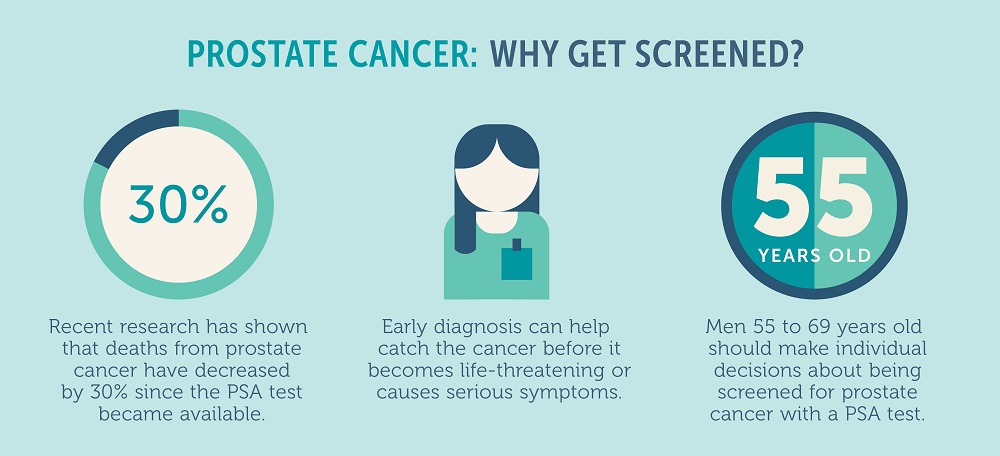
What Is the PSA Test?
Screening for prostate cancer begins with a prostate specific antigen (PSA) test that measures the level of PSA in the blood. The American Urological Association recommends the PSA test for prostate cancer screening.
PSA tests aren’t foolproof. It’s possible for PSA levels to be elevated when cancer isn’t present, and to not be elevated when cancer is present.
What Is PSA?
PSA is a substance made by the prostate. The levels of PSA in the blood can be higher in men who have prostate cancer. The higher the PSA level in the blood, the more likely a prostate problem is present. A normal PSA test result is 4.0 ng/ mL, but levels can vary person to person.
PSA levels can also be elevated because of other conditions that affect the prostate:
- Enlarged prostate
- Prostatitis
- Urinary tract infection
Because many different factors can affect PSA levels, your doctor is the best person to interpret your PSA test results.
Why Get Screened?
The goal of screening for prostate cancer is to find cancers that may be at high risk for spreading if not treated, and to find them early before they spread.
Early diagnosis can help catch the cancer before it becomes life-threatening or causes serious symptoms.
Recent research has shown that deaths from prostate cancer have decreased by 30% since the PSA test became available.
If the PSA test is abnormal, your doctor may recommend additional testing to confirm findings or a referral to a urologist.
Possible Risks of Screening
- Overdiagnosis: Diagnosis can lead to unnecessary exposure to painful side effects from treatments like surgery and radiation
- False-positive results: PSA levels could be elevated for reasons other than prostate cancer.
What Do Experts Recommend?
Men in their 50s should discuss with their doctor their options for prostate cancer screening, including a review of risk factors and preferences about screening.